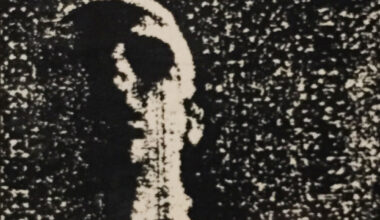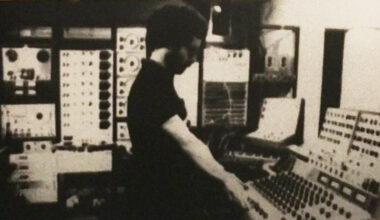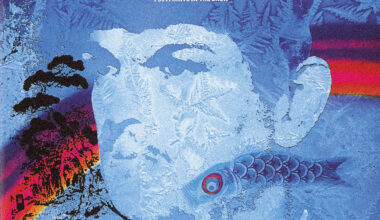Resident archivist Jack Dangers rifles through his collection of work by the Polish composer Krzysztof Penderecki

Penderecki didn’t record very much pure electronic music, but his tape music piece ‘Psalmus’ is on the Warsaw disc of the ‘Electronic Panorama’ boxset, Pierre Henry’s 1970 overview of the output of electronic music studios of the world. It’s also on a Czechoslovakian compilation called ‘Elektronická Hudba’ (‘Electronic Music’) from 1966 and ‘Electronic 2000’, a 1971 LP compiled from highlights of ‘Electronic Panorama’.
‘Psalmus’ was recorded at Warsaw’s experimental electronic studio, with Polish composer/ sound engineer Eugeniusz Rudnik producing. They recorded the soprano singer Halina Łukomska and manipulated the recordings with various electronic filters. There is a compilation CD called ‘Homo Ludens’ on the Bôłt label with two long Rudnik pieces and five shorter Penderecki pieces. The first Rudnik track, ‘Birds And People’, credits Penderecki as one of the voices.
The music that came out of the Warsaw studio isn’t as high fidelity as the output from the Cologne and Paris studios. It always sounds like it was recorded under a quilt, but I quite like that. It’s because they rolled off a lot of the top end to counter the tape hiss you get when you layer recordings. It has a quality all of its own.
The majority of Penderecki’s work was orchestral, and one of his best-known pieces is ‘Threnody For The Victims Of Hiroshima’ from 1960, which used the orchestra as a noise device, players plucking, scraping and tapping their instruments.
Most people will have heard his music on film soundtracks without knowing it. ‘The Exorcist’ used ‘Polymorphia’, which Penderecki composed in 1961. In 1980, Kubrick used it in ‘The Shining’, and I think it was via that film that I became aware of him. Radiohead’s Jonny Greenwood is a big fan too, and worked with him on an album in 2012. Greenwood wrote a piece called ‘Pacay Tree (48 Responses To Polymorphia)’.
‘The Shining’ soundtrack has never been re-released. There was some dispute over copyright, and possibly Penderecki was unhappy that his music was messed around with in the film. The film’s music editor, Gordon Stainforth, said that he sandwiched several Penderecki pieces together to create the effect he was after. Kubrick said no one would notice.
Penderecki, who died after a long illness on 29 March 2020 aged 86, had an asteroid belt named after him in 1991. There aren’t many experimental composers with that in their CV.





